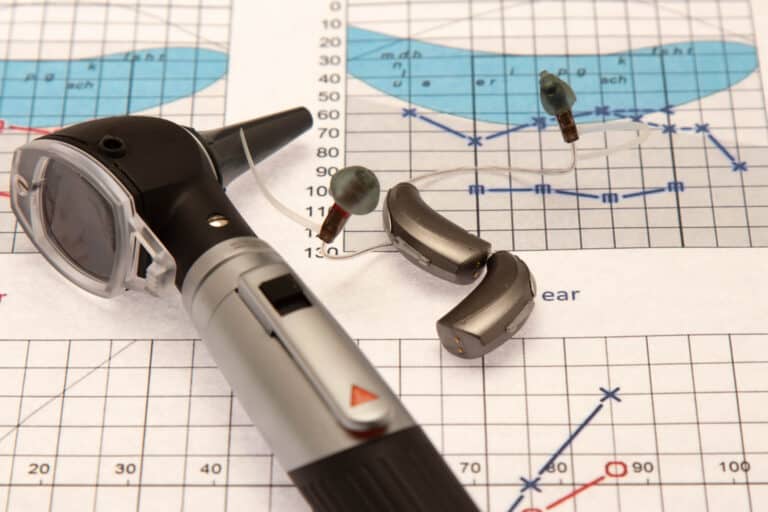Though there are several different tiers of hearing aid technology, from basic to advanced, all hearing aids consist of the same basic parts:
- The microphone picks up sounds in your environment.
- The processor amplifies sounds to the exact volume level you need.
- The receiver delivers amplified sound to your ears.
- The battery powers the device.
Even basic hearing aids are great at amplifying sounds to a level you can easily hear, but advanced hearing aids have even more to offer. We review the differences below.
Basic Hearing Aids
Basic hearing aids are operated manually. This means you’ll press physical buttons on the hearing aids to adjust the volume and switch between programs.
There is also limited customization when it comes to basic hearing aids; they are designed for more general environments and situations. However, they can still be programmed to the specifications of your hearing loss to amplify sounds you have trouble hearing.
Basic hearing aids generally come with directional microphones: one set that picks up sounds in front of you and one set that picks up sounds all around you, providing better hearing of your conversation partner but still a natural soundscape.
These devices also have some wireless features, including telecoils and FM system compatibility.
Advanced Hearing Aids
Advanced hearing aids are more automatic than their basic counterparts. For example, some offer geotagging features, which remember the settings you prefer in specific environments and automatically adjust to that program.
These devices offer not only directional microphones, but also speech recognition and background noise reduction features. So you can enjoy a hike with friends and understand their voices clearly while wind noise is reduced.
Advanced hearing aids offer the wireless features listed above, but many also offer Bluetooth® compatibility, so you can use your hearing aids as wireless earbuds for your phone, tablet, laptop and even a compatible TV!
To learn more about the differences between basic and advanced hearing aids or to schedule an appointment with a hearing aid expert, call PDX ENT today.



